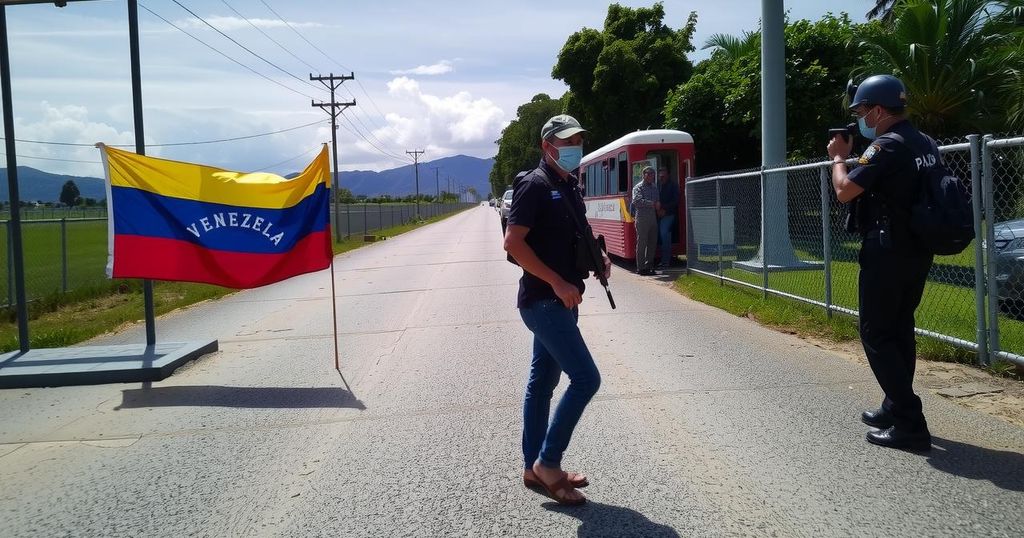Venezuela’s President Nicolas Maduro is set to take the oath for a third term amidst protests and accusations of electoral fraud. Opposition leader Maria Corina Machado faced detention while leading demonstrations demanding accountability from Maduro’s government. Amidst heightened repression, international criticism grows, and the Colombian border has been closed, citing safety concerns surrounding an alleged conspiracy against the Maduro regime.
As Venezuela’s President Nicolas Maduro prepares to commence his third term in office, opposition to his regime intensifies. Following allegations of electoral fraud and suppression of dissent, thousands of Venezuelans protested on the eve of the inauguration. Maria Corina Machado, a prominent opposition figure, faced brief detention after leading protests in Caracas, prompting condemnation from both Colombian and international officials regarding the repression of opposition leaders. The Colombian border has been temporarily closed by local authorities, citing a purported international conspiracy against Maduro’s government.
Maduro’s administration has been scrutinized for its actions against demonstrators, as reports of violence and arbitrary detentions continue to surface. The tension escalated after the United Nations voiced concerns about recent abuses against members of the opposition. Countering this unrest, Maduro receives support from Russia and Cuba, as well as a loyal military presence that enables him to maintain control despite significant economic challenges and widespread public dissent.
In a broader context, the political atmosphere remains precarious for Venezuelan citizens. The opposition leader’s recent attempts to challenge Maduro’s authority have led to increased State repression, suggesting a renewed wave of persecution against dissenters. Prominent opposition figures are actively calling for international support to restore democracy in Venezuela, highlighting the ongoing struggle faced by those opposing Maduro’s administration amidst threats and violence from the government.
Venezuela has faced significant political turmoil since Nicolas Maduro assumed the presidency in 2013 following the death of Hugo Chavez. Maduro’s controversial re-election in 2018 was widely disputed, prompting both domestic dissent and international condemnation. His regime has been accused of authoritarian practices, including the suppression of opposition leaders and the manipulation of electoral processes. The socio-political landscape in Venezuela is marked by economic decline, leading to widespread protests and heightened calls for democratic reform, particularly among opposition groups.
In summary, Venezuela is witnessing a critical phase marked by escalated government repression against opposition leaders ahead of President Maduro’s third-term inauguration. The situation on the ground, particularly in the wake of public protests led by figures like Maria Corina Machado, underscores the persistent tensions in the country. With international scrutiny and condemnation directed at Maduro’s administration, the path to restoring democracy remains fraught with challenges for the Venezuelan people.
Original Source: www.lemonde.fr






